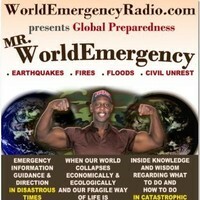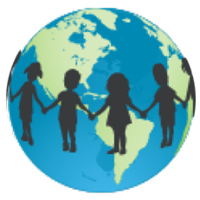Big Mumbai Register: Step into the Game
Welcome to “Big Mumbai: The Real City Game”, an immersive gaming experience that captures the vibrant essence of Mumbai. To start your journey in this dynamic virtual city, you must first complete the Big Mumbai registration process. This registration not only unlocks the game, but personalizes your journey, ensuring an immersive and personalized experience.
What is Big Mumbai Register?
Big Mumbai Register is the first step to enter the exciting world of "Big Mumbai: The Real City Game". This registration system is designed to be quick and easy, allowing players to create profiles, choose their roles and set preferences. The Big Mumbai Register is essential to provide exclusive content, save your progress and ensure a smooth gaming experience.
Steps to complete Big Mumbai registration
Create your profile
Avatar Customization: Choose from a variety of avatars and customize your character’s look to reflect your style. Whether you want to wear traditional or contemporary clothes, the options are endless.
Starting point: Choose a starting point in the city. Start your journey in a bustling market, peaceful beach, or busy train station, each offering unique experiences and challenges.
Choose your role
Dabbawala: Check and upgrade your lunch box delivery to work and ensure timely delivery in town.
Aspiring actors: Navigate the Bollywood scene, from audition to stardom.
Local Entrepreneurs: Establish and maintain your business in the competitive market of Mumbai.
Street Artist: Show off your talent and be popular with the locals.
Set your preferences
Game Structure: Adjust the difficulty and choose the type of mission that appeals to you, from simple quests to complex tactical tasks.
Social features: Turn social features on or off based on your comfort level. Connect with friends, make deals, and share your progress on social media.
Link to social accounts
Social media integration: Link your social media accounts to share progress and milestones with your friends. Invite them to join the game and make a deal.
Cloud Save: Save and synchronize your game progress across devices so you can pick up where you left off.
Start the journey
Apply: Once you have completed the Big Mumbai Register, you will be ready to explore the city. Start with an introductory mission that introduces you to game mechanics and the layout of the city.
Progress and Exploration: By completing missions and challenges, you will unlock new areas and experiences or do big mumbai register. Climb the leader board and get paid as you progress.
Advantages of Big Mumbai Register
Setting up the Big Mumbai Register comes with many benefits:
Content: Access exclusive missions, challenges and in-game events exclusively for big mumbai register players.
Individualized Experience: Customize the game for more exciting and exciting adventures.
Progress tracking: Track game progress, achievements and milestones. Picking up where you left off, anytime, anywhere.
Social interaction: Connect with friends, make alliances and compete on leaderboards. Share your achievements and achievements on social media and do big mumbai register.
conclusion
“Big Mumbai: The Real Theater of the City” is not just a play; is an immersive experience that allows you to explore and experience the vibrant lifestyle of Mumbai. Big Mumbai Register is your gateway to this exciting adventure. By completing the big mumbai register process, you unlock a world filled with stunning landmarks, exciting missions and dynamic gameplay. So what are you waiting for? Register at Big Mumbai today and join the game. Your Mumbai trip awaits!
https://bigmumbaioriginal.com/
People
Circles
Posts
(15.) The Watchmen Program Security Solution Answer to All Economical Ecological Problems
#1 Will- Better protect the nation; from Terrorist
Attacks from the inside out.
#2 Will- Nationwide create millions of Jobs for Citizens within;
and Military personnel coming home.
#3 Will- Generate billions of New Revenue for the
Federal & Local Government to reconcile their books.
#4 Will- Establish a Green Facilities Industry building
Homes, Schools, Medical units & portable farms
#5 Will- Build a universal vehicle for Educating New
Entrepreneurs & Training Emergency Responders.
#6 Will- Help rein in rouge Rulers; working with our allies
defusing Threats of War & Terrorism.
#7 Will- Give generous help to Refugees displaced from them
homes globally.
https://youtu.be/2NjdMttq1UQ
Alphacodez is your trusted provider of Binance clone script , offering businesses customizable and secure solutions to launch their own cryptocurrency exchanges. With features inspired by Binance's innovation, Alphacodez ensures seamless integration and scalability, empowering entrepreneurs to thrive in the dynamic crypto landscape.
Refer : https://www.alphacodez.com/binance-clone-script
Videos
People
Circles
Videos
Posts
Big Mumbai Register: Step into the Game
Welcome to “Big Mumbai: The Real City Game”, an immersive gaming experience that captures the vibrant essence of Mumbai. To start your journey in this dynamic virtual city, you must first complete the Big Mumbai registration process. This registration not only unlocks the game, but personalizes your journey, ensuring an immersive and personalized experience.
What is Big Mumbai Register?
Big Mumbai Register is the first step to enter the exciting world of "Big Mumbai: The Real City Game". This registration system is designed to be quick and easy, allowing players to create profiles, choose their roles and set preferences. The Big Mumbai Register is essential to provide exclusive content, save your progress and ensure a smooth gaming experience.
Steps to complete Big Mumbai registration
Create your profile
Avatar Customization: Choose from a variety of avatars and customize your character’s look to reflect your style. Whether you want to wear traditional or contemporary clothes, the options are endless.
Starting point: Choose a starting point in the city. Start your journey in a bustling market, peaceful beach, or busy train station, each offering unique experiences and challenges.
Choose your role
Dabbawala: Check and upgrade your lunch box delivery to work and ensure timely delivery in town.
Aspiring actors: Navigate the Bollywood scene, from audition to stardom.
Local Entrepreneurs: Establish and maintain your business in the competitive market of Mumbai.
Street Artist: Show off your talent and be popular with the locals.
Set your preferences
Game Structure: Adjust the difficulty and choose the type of mission that appeals to you, from simple quests to complex tactical tasks.
Social features: Turn social features on or off based on your comfort level. Connect with friends, make deals, and share your progress on social media.
Link to social accounts
Social media integration: Link your social media accounts to share progress and milestones with your friends. Invite them to join the game and make a deal.
Cloud Save: Save and synchronize your game progress across devices so you can pick up where you left off.
Start the journey
Apply: Once you have completed the Big Mumbai Register, you will be ready to explore the city. Start with an introductory mission that introduces you to game mechanics and the layout of the city.
Progress and Exploration: By completing missions and challenges, you will unlock new areas and experiences or do big mumbai register. Climb the leader board and get paid as you progress.
Advantages of Big Mumbai Register
Setting up the Big Mumbai Register comes with many benefits:
Content: Access exclusive missions, challenges and in-game events exclusively for big mumbai register players.
Individualized Experience: Customize the game for more exciting and exciting adventures.
Progress tracking: Track game progress, achievements and milestones. Picking up where you left off, anytime, anywhere.
Social interaction: Connect with friends, make alliances and compete on leaderboards. Share your achievements and achievements on social media and do big mumbai register.
conclusion
“Big Mumbai: The Real Theater of the City” is not just a play; is an immersive experience that allows you to explore and experience the vibrant lifestyle of Mumbai. Big Mumbai Register is your gateway to this exciting adventure. By completing the big mumbai register process, you unlock a world filled with stunning landmarks, exciting missions and dynamic gameplay. So what are you waiting for? Register at Big Mumbai today and join the game. Your Mumbai trip awaits!
https://bigmumbaioriginal.com/
(15.) The Watchmen Program Security Solution Answer to All Economical Ecological Problems
#1 Will- Better protect the nation; from Terrorist
Attacks from the inside out.
#2 Will- Nationwide create millions of Jobs for Citizens within;
and Military personnel coming home.
#3 Will- Generate billions of New Revenue for the
Federal & Local Government to reconcile their books.
#4 Will- Establish a Green Facilities Industry building
Homes, Schools, Medical units & portable farms
#5 Will- Build a universal vehicle for Educating New
Entrepreneurs & Training Emergency Responders.
#6 Will- Help rein in rouge Rulers; working with our allies
defusing Threats of War & Terrorism.
#7 Will- Give generous help to Refugees displaced from them
homes globally.
https://youtu.be/2NjdMttq1UQ
Alphacodez is your trusted provider of Binance clone script , offering businesses customizable and secure solutions to launch their own cryptocurrency exchanges. With features inspired by Binance's innovation, Alphacodez ensures seamless integration and scalability, empowering entrepreneurs to thrive in the dynamic crypto landscape.
Refer : https://www.alphacodez.com/binance-clone-script
Adelaide, the dynamic capital of South Australia, is a hotspot for startups and small businesses, driven by its robust economy. The city and its neighboring suburbs offer a plethora of business and franchise opportunities, making Adelaide an attractive choice for aspiring entrepreneurs. Business2Sell, established in 2006, offers a user-friendly web portal for buying and selling profitable businesses across Adelaide. With over 150 businesses for sale Adelaide in various sectors, our platform simplifies the search for your perfect venture. Explore our interactive website to find your dream business opportunity in Adelaide, SA. For more details, contact us at 1300 556 121 or visit our website and start your entrepreneurial journey today. https://www.business2sell.com.au/businesses/sa/adelaide
The Rodale Institute has shown that if global crops + pastureland were managed according to regenerative systems, 100% of global CO2 emissions could be stored in soils.
An organic food supply would not only reduce global warming but vastly improve human health + the viability of world healthcare systems while avoiding the centralization and corporate control of food production.
MORE ON THIS FROM GMWATCH ⬇️
https://childrenshealthdefense.org/defender/techno-foods-tech-entrepreneurs-richer/?utm_source=sovren&utm_medium=social&utm_campaign=defender&utm_id=20240607











